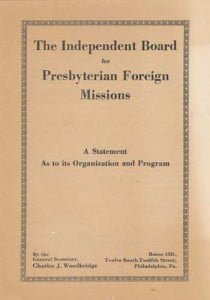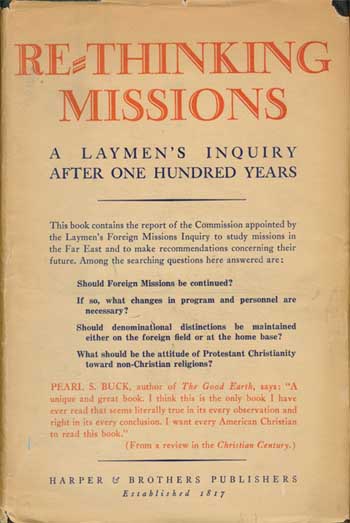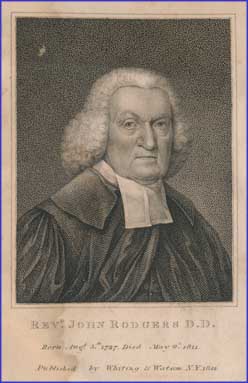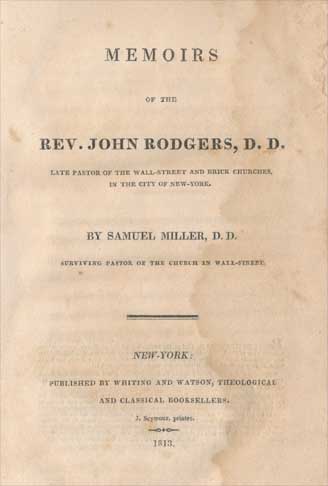We continue this week with the remainder of Chapter VII of PRESBYTERIANISM FOR THE PEOPLE, by the Rev. Robert P. Kerr (1883). Please keep in mind that the author here is speaking of the organization of his own Church at that time. There are many differences today for most of the Presbyterian Churches in this country. For one, only the PC(USA) has the Synod level court; the PCA, OPC, EPC and other conservative Presbyterian denominations do not employ the Synod structure.
II. THE PRESBYTERY.
This is the most important assembly of the Church, because it has the most work to do. It has charge of all the congregations in a certain district, and is composed of all the ministers and one elder from every church in that district. [Ed.: This limit of one ruling elder per church was for the PCUS; it may or may not be the case with our modern Presbyterian denominations]. Quotation is made from the same excellent authority as before for a description of the functions of this body, and also the Synod and the General Assembly :
“The Presbytery has power to receive and issue appeals, complaints and references brought before it in an orderly manner; to examine and license candidates for the holy ministry; to receive, dismiss, ordain, install, remove and judge ministers; to review the record of the church Sessions, redress whatever they may have done contrary to order and take effectual care that they observe the constitution of the Church; to establish the pastoral relation, and to dissolve it at the request of one or both of the parties or where the interests of religion imperatively demand it; to set apart evangelists to their proper work; to require ministers to devote themselves diligently to their sacred calling and to censure the delinquent; to see that the lawful injunctions of the higher courts are obeyed; to condemn erroneous opinions which injure the purity or peace of the church; to visit churches for the purpose of inquiring into and redressing the evils that may have arisen in them; to unite or divide churches at the request of the members thereof; to form and receive new churches; to take special oversight of vacant churches; to concert measures for the enlargement of the Church within its bounds; in general, to order whatever pertains to the spiritual welfare of the churches under its care; to appoint commissioners to the General Assembly; and, finally, to propose to the Synod or to the Assembly such measures as may be of common advantage to the Church at large.” [compare the PCA’s Book of Church Order, chapter 13, paragraph 9, which is closely similar]
III. THE SYNOD.
This assembly has under its care all the Presbyteries in a large district, corresponding, usually, in America, with the area of a State—for example, the Synod of New York or the Synod of North Carolina. The Synod is usually composed of all the ministers and one elder from every congregation in its bounds; but, in some branches of the Church, Synods are allowed to choose between this plan and that of having its members appointed by the Presbyteries under its care.
“The Synod has power to receive and issue all appeals, complaints, and references regularly brought up from the Presbyteries; to review the records of the Presbyteries and redress whatever they may have done contrary to order; to take effectual care that they observe the constitution of the Church, and that they obey the lawful injunctions of the higher courts; to erect new Presbyteries and unite or divide those which were before erected; to appoint ministers to such work, proper to their office, as may fall under its own particular jurisdiction; in general, to take such order with respect to the Presbyteries, Sessions and churches under its care as may be in conformity with the Word of God and the established rules, and may tend to promote the edification of the Church; to concert measures for promoting the prosperity and enlargement of the Church within its bounds; and, finally, to propose to the General Assembly such measures as may be of common advantage to the whole Church. It shall be the duty of the Synod to keep full and fair records of its proceedings, to submit them annually to the inspection of the General Assembly and to report to it the number of its Presbyteries and of the members thereof, and, in general, all important changes which may have occurred within its bounds during the year.”
IV. THE GENERAL ASSEMBLY.
This is the highest authoritative assembly of the Church. It meets annually, and has charge of all the Synods in its division of the great Presbyterian sisterhood. It is composed of an equal number of ministers and elders, appointed by the Presbyteries. If a Presbytery has more than twenty-four ministers on its roll, it may send two ministers and two elders, and in some branches of the Church may go on increasing the number of its delegates by two for every twenty-four ministers in its membership. There are many General Assemblies, representing many bodies of Presbyterians, and all independent of one another.
“The General Assembly shall have power to receive and issue all appeals, references and complaints regularly brought before it from the inferior courts* [*In some branches of the Presbyterian Church cases of minor importance are not allowed to come before the General Assembly, but the Synod’s settlement of them is final.]; to bear testimony against error in doctrine and immorality in practice injuriously affecting the Church; to decide in all controversies respecting doctrine and discipline; to give its advice and instruction, in conformity with the constitution, in all cases submitted to it; to review the records of the Synods; to take care that the inferior courts observe the constitution; to redress whatever they may have done contrary to order; to concert measures for promoting the prosperity and enlargement of the Church; to erect new Synods; to institute and superintend the agencies necessary in the general work of evangelization; to appoint ministers to such labors as fall under its jurisdiction; to suppress schismatical contentions and disputations according to the rules provided therefor; to receive under its jurisdiction, with the consent of the majority of the Presbyteries, other ecclesiastical bodies whose organization is conformed to the doctrine and order of this Church; to authorize Synods and Presbyteries to exercise similar power in receiving bodies suited to become constituents of those courts and lying within their geographical bounds respectively; to superintend the affairs of the whole Church; to correspond with other Churches; and, in general, to recommend measures for the promotion of charity, truth and holiness through all the churches under its care.” [compare the PCA’s BCO chapter 14, paragraph 6, which is similar.]





